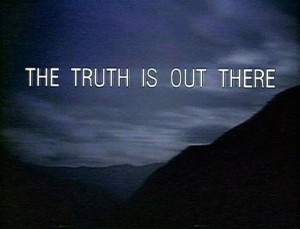I’ve always been interested in space, and I’ve written about it here on these pages. I get a sense of wonder just looking up to the night sky. I once owned a dinky 3 inch refractor telescope and my son and I would look at the stars. Unfortunately, light polution being what it is in my neck of the woods, there’s not much to see. But it’s out there….it’s really out there.
I read a few articles recently on something called the Fermi Paradox. It goes something like this:
When we look up into a sky filled with stars, all we’re really seeing is our closest neighboring stars. That’s all that are visible to the naked eye. We can see less than one percent of the stars in our own galaxy (the Milky Way)!
Now, lets try some numbers: In our galaxy alone, there are 100-400 billion stars! In the observable universe, there are over 100-400 billion galaxies! That means there are 500 quintillion( 500,000,000,000,000,000,000) stars in our observable universe. Observable meaning those we can see with our best deep-space telescopes. There’s more beyond that, we just can’t see it.
Now it gets a little tricky, so bear with me. If only one percent of these stars had earth-like planets, there would be over 100 billion-billion earth like planets.
As one article I read suggested, try it this way: There are 100 earth-like planets in the universe for every grain of sand on earth! Yeah that’s right. Every grain of sand (think of all the beaches), every grain=100 earth like planets!
Go ahead, wrap your brain around that one. It’s really impossible to do. I can’t even imagine counting the grains of sand in one bucket.
So here’s where it gets interesting. If only one percent of those earth-like planets developed life, and if only one percent of that life ever evolved to what we would call intelligent life, there would be ten million intelligent civilizations in the universe!
If there are that many intelligent civilizations, where the hell are they? Why aren’t they visiting us? Or have they? Here’s more of the paradox:
If there are other intelligent beings out there, and if they could come to visit us, they would be far more advanced then we are. Not just a little more but vastly more. Any beings capable of interstellar travel are not just thousands of years ahead of us, but maybe millions of years. There are a number of different scenarios about them:
1. They may have been here and gone: Advanced civilizations could be millions of years ahead of us and may have stopped by earth thousands of years ago, found nothing interesting, and went on their way. There’s lots of universe to explore.
2. There are galactic colonies, but they are so far away we have no idea that they exist.
3. Advanced civilizations are aware of us, but we are of no more interest to them than insects.
4. There’s lots of activity out there, but our technology is too primative to understand it.
5. There is no one out there more advanced than us.
6. They are there, but the government is covering it up.
The notions and theories go on and on, but you get the idea. We’re not going to get into flying saucers and so forth here (maybe some other time). My real reason for writing this was that I’m pretty flabergasted at the size of the universe and can’t help but wonder what it’s all about. We are soooo miniscule, so nothing by comparison. And yet we often think we know it all.
If you want to learn more about this, there’s plenty online. By the way, Enrico Fermi, the Italian physicist, came up with this originally, around 1950.
Maybe when we’re feeling smug and superior, we might be well served to take a look out there, and get some perspective.
I was going to skip the flying saucer part, but here’s a good one:




As grains through an hour glass..as sand on the shore..what we see with our naked eye cannot be compared to the galaxy! Good article Bill!